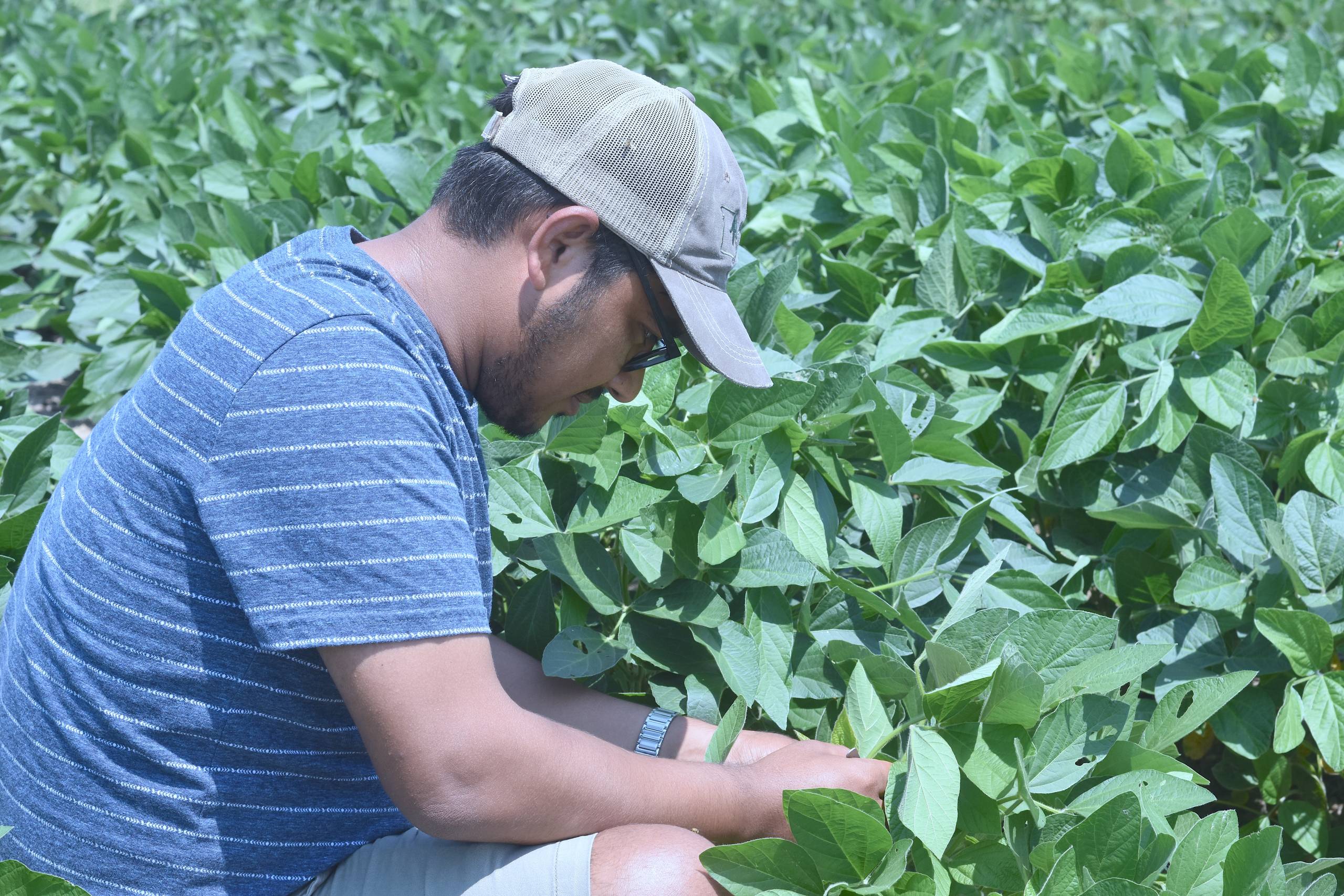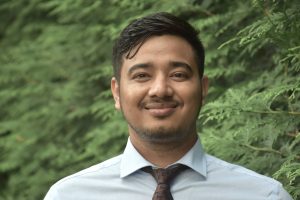
Pawan Basnet, a Ph.D. candidate in the Division of Plant Science and Technology at the University of Missouri (MU) College of Agriculture, Food and Natural Resources (CAFNR) received a Borlaug Scholarship through the National Association of Plant Breeders (NAPB). Eighteen graduate students from universities throughout the United States were selected for this award.
The NAPB outreach group represents plant breeders in federal, state, commercial, and non-governmental organizations. The association strengthens plant breeding to promote food security, quality of life, and a sustainable future.
“Being a part of NAPB has allowed me to get connected with leaders in the plant breeding field,” said Basnet.

The Borlaug Scholars program strengthens the plant breeding profession by helping support the attendance of future leaders at the NAPB Annual Meeting. The application criteria included the candidate’s degree program, a brief description of the research area and career goals, leadership roles, and a letter of recommendation. Being selected as a Borlaug Scholar, recipients are assigned a mentor with significant leadership roles within the NAPB.
“There are multiple benefits to being selected as a Borlaug Scholar,” Basnet said. “For one, it’s one of the most prestigious scholarships you can receive as a plant science student. Secondly, being paired with a leader in agricultural research is an excellent learning opportunity. This opportunity you don’t get often.”
Basnet’s mentor will be Richard C. Pratt, a distinguished professor and the director of Cropping Systems Research Innovation Program at New Mexico State University. Basnet expects the mentoring program with Pratt, particularly his experiences at different universities (the University of Arizona, The Ohio State University, Purdue University, and NMSU) will help Basnet learn from Pratt’s experiences regarding the research and leadership at public universities.
Basnet’s research focuses on the identification and deployment of alternative modes of soybean cyst nematode (SCN) resistance in modern soybean-resistant cultivars. Through his research, he was able to determine a distinct interaction between two important SCN resistance loci, which have been utilized to diversify SCN resistance in soybean cultivars developed by the MU Northern Soybean Breeding Program.
Basnet joined the Mizzou Department of Plant Science and Technology in 2018. He comes from a farming background in Nepal, where he said he grew up witnessing subsistence agriculture. He received his BS from the Banaras Hindu University, India, and moved to the U.S. for his master’s degree in plant science at South Dakota State University. Basnet is advised by Andrew Scaboo, an assistant professor studying soybean breeding here at MU.
“I ended up choosing MU for my studies, primarily because of the expertise the faculty in the department have. MU has a long history of soybean cyst nematode (SCN) research and has a prestigious SCN resistance breeding program,” said Basnet. His future goal is to be a plant breeder with a major emphasis on pathogen-resistance breeding, either in academia or in industry.
Basnet was recognized virtually for his Borlaug Scholarship Aug. 15-19 at the NAPB Annual Meeting hosted by Cornell University. He was also awarded the Diversity Enhancement Award from NAPB. This award supports undergraduate and early graduate students belonging to historically underrepresented groups in their plant breeding careers.